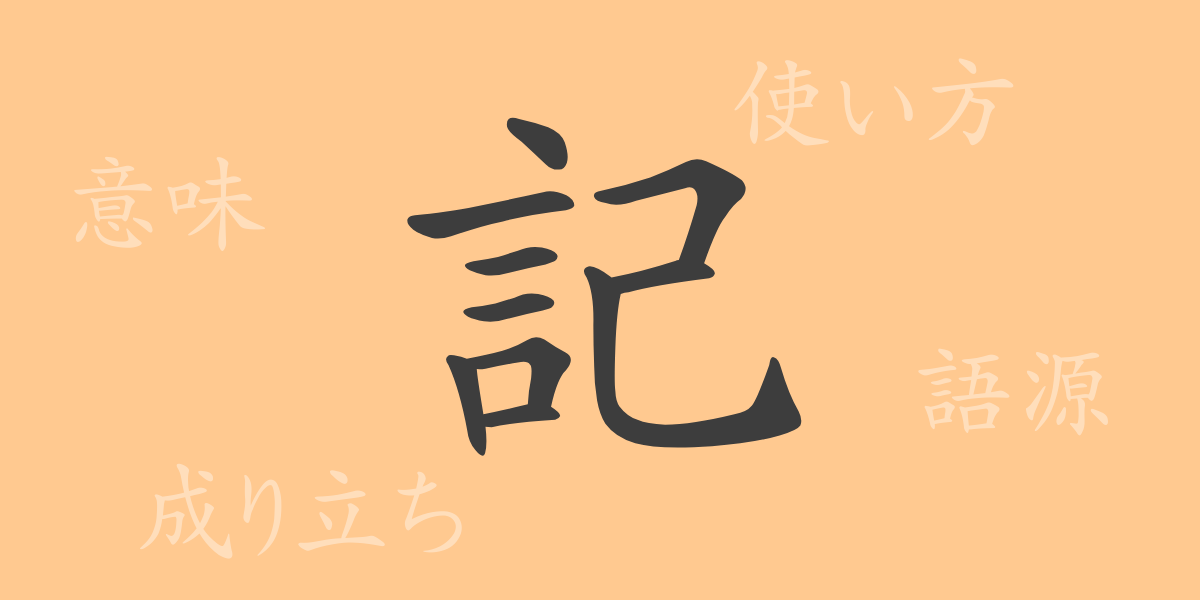In the Japanese language, there are many characters that carry the power to engrave emotions and history. One such kanji is “記” (ki), which is deeply rooted in our everyday lives. In this article, we will delve into the allure of “記” (ki), exploring its origins, meanings, and usage, as well as phrases and idioms that include it. Let’s step into the world of “記” (ki), a commonly used kanji in Japan, together.
The Origin of 記 (Ki)
The kanji “記” (ki) has an ancient origin, derived from pictographs. Initially, it combined the character “言” (gen, meaning “to speak”) with “己” (ki, representing one’s actions or intentions). This symbolized the act of recording and conveying one’s thoughts through words. Over time, it evolved into the current form “記” (ki) and became a fundamental kanji for various words related to writing and recording.
Meanings and Usage of 記 (Ki)
The kanji “記” (ki) encompasses meanings such as “to record,” “to note,” and “to remember.” It signifies the act of writing or keeping something in memory and is used in various Japanese terms such as diary (日記, nikki), commemoration (記念, kinen), and description (記述, kijutsu). These terms play a vital role in retaining information and passing it down to future generations.
How to Read 記 (Ki), Stroke Count, and Radical
“記” (ki) is one of the basic kanji in Japanese, and understanding its pronunciation and structure is essential for deepening one’s grasp of the language.
- Pronunciation: Onyomi (Sino-Japanese reading) is “キ” (ki), Kunyomi (native Japanese reading) is “しる.す” (shiru.su)
- Stroke Count: A total of 10 strokes
- Radical: 言 (ことばへん, kotoba hen) meaning “speech”
Phrases, Idioms, and Proverbs Using 記 (Ki) and Their Meanings
There are numerous idioms, phrases, and proverbs that include the kanji “記” (ki) in Japanese, each with its own rich meaning. Here are some examples:
- 日記 (にっき, nikki): A record of daily events.
- 記憶 (きおく, kioku): The act of keeping experiences and learned things in mind.
- 記述 (きじゅつ, kijutsu): The act of writing down details in words or text.
- 口頭記 (こうとうき, koutouki): Recording what is said orally.
- 暗記 (あんき, anki): Memorizing something to not forget it.
Conclusion on 記 (Ki)
The kanji “記” (ki) symbolizes the basic human activity of recording and conveying information. It is an indispensable element in our communication and the preservation of culture, with a wide range of uses. Through this article, we hope you have gained a deeper understanding of the rich history and meaning of “記” (ki), and that it will help you enrich your use of language.

























